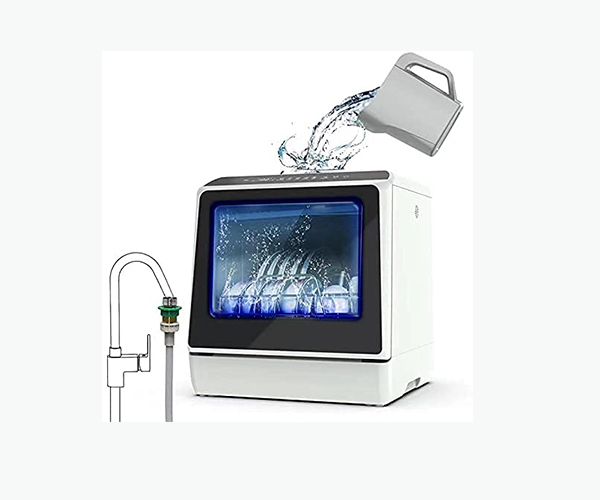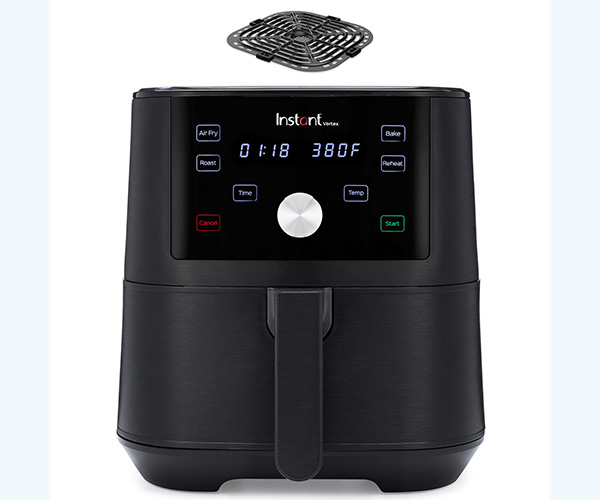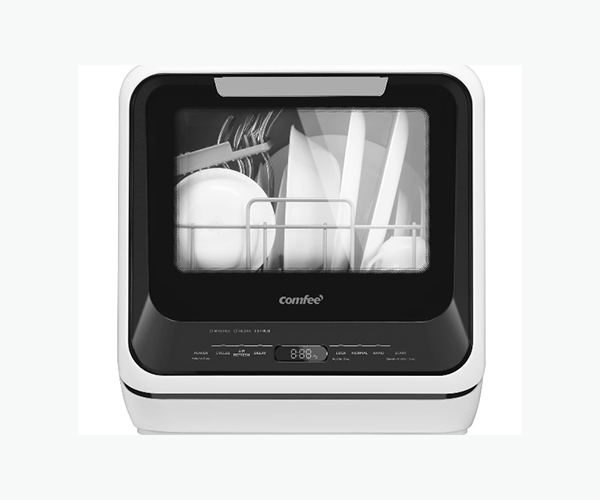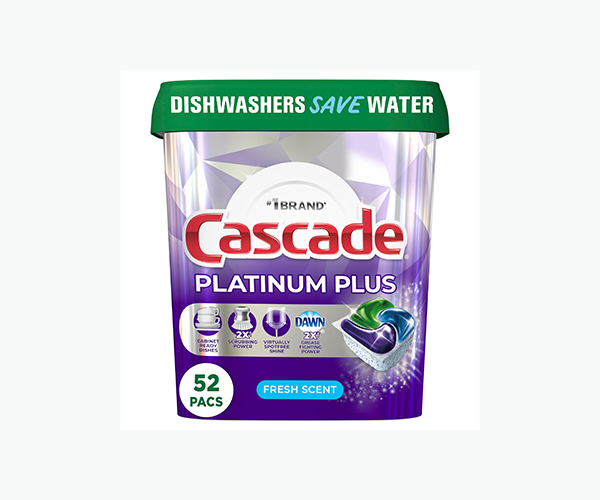I. Types of Commercial Dishwashers
The commercial kitchen is a busy place where cleanliness and effectiveness are crucial. The commercial dishwasher is one of the most important parts in keeping this balance. We will examine the many kinds of commercial dishwashers and their best applications in this section.
Conveyor Dishwashers
- High-Volume Efficiency: Conveyor dishwashers are the titans of the dishwashing world, designed for high-volume establishments like large restaurants and cafeterias.
- Automated Process: These machines automate the entire washing process, ensuring a quick turnover of dishes.
- Operational Ease: Typically, they come with easy-to-use control panels and can wash hundreds of racks per hour.
For companies that need to clean dishes quickly and thoroughly and have a large volume of dishes to process, conveyor dishwashers are the preferred choice. They are a vital instrument in large-scale operations because to their enormous capacity and automated systems.
Undercounter Dishwashers
- Space-Saving Design: Undercounter dishwashers are compact machines that fit conveniently under a counter, making them ideal for smaller businesses like bars and cafes.
- Efficiency: Despite their size, they are highly efficient, capable of cleaning a respectable number of dishes per hour.
- Ease of Use: These machines are user-friendly, often featuring simple controls and quick wash cycles.
Undercounter dishwashers provide the ideal solution for spaces that are tight on space but still require effective dishwashing. Because of their silent operation design, they are appropriate for settings where noise levels are an issue.
Glass Washers
- Specialized Cleaning: Glass washers are specifically designed for cleaning glassware, ensuring that each glass is spotless and sanitary.
- Gentle Yet Effective: These machines use a gentler washing action to prevent any damage to delicate glassware.
- Sanitization: High-temperature options are available to ensure that all glassware is sanitized properly.
For bars, pubs, and any other facility that serves drinks in glassware, glass washers are the best option. They are designed to get rid of remnants from used glasses, like lipstick and fruit pulp. Because of its unique design, glassware is guaranteed to be hygienic and cleaned to comply with health regulations.

II. Considerations for Business Owners
When making an investment in a commercial dishwasher, entrepreneurs must take into account a number of important factors. Making an educated choice can have a big impact on your long-term expenses and operational effectiveness.
Capacity and Throughput
- Capacity: The dishwasher’s capacity should be taken into account first. Its capacity to handle dishes in a single cycle is shown by this. A bigger capacity is crucial for companies that see significant traffic levels.
- The amount of dishes that can be cleaned in an hour is known as the throughput. Higher throughput is best suited for companies with steady consumer influxes.
- Advice: To choose the appropriate type and size of dishwasher, evaluate the amount of dishes your company needs to wash on a daily basis.
Energy Efficiency
- Find dishwashers with an Energy Star rating by looking for models with this designation. The increased energy efficiency of these models can result in considerable electricity bill reductions.
- Advice: Investing in an energy-efficient model will cut power bills while also lessening the environmental effect of your company.
Water and Chemical Usage
- Water Consumption: Some dishwashers use less water than others. Lower water usage can result in cost savings and is better for the environment.
- Chemical Consumption: Consider models that use fewer chemicals but still provide effective cleaning and sanitization.Tip: Ensure efficient water and chemical consumption to optimize operational costs.
Installation and Maintenance
- Installation Requirements: Some commercial dishwashers require specialized installation, which could add to the initial cost.
- Maintenance: Regular maintenance is crucial for the long-term performance of your dishwasher. Factor in the cost and availability of replacement parts and service.
Tip: Always consider installation requirements and ongoing maintenance to keep your dishwasher running smoothly.

III. Compliance and Sanitization
Compliance and sanitization are not simply catchphrases in the food and beverage sector; they are essential components that have the power to build or destroy a company. It is crucial to make sure your industrial dishwasher complies with all applicable health and safety laws. Additionally, for efficient sanitization and to avoid bacterial contamination, keeping the right water temperature is essential.
Health and Safety Regulations
- Local Codes: Always check with your local health department to understand the specific regulations and codes that apply to commercial dishwashers in your area.
- Certifications: Look for dishwashers that have been certified by recognized bodies such as NSF International. These certifications are a testament to the machine’s compliance with health and safety standards.
- Regular Inspections: It’s not enough to just install a compliant dishwasher; regular inspections are essential to ensure ongoing compliance. Make it a point to schedule these inspections either in-house or through certified agencies.
- Documentation: Always keep records of your dishwasher’s maintenance, cleaning cycles, and temperature logs. This documentation can be crucial in case of health inspections.
Temperature Control
- Minimum Temperature: For the final sanitizing rinse, the FDA Food Code suggests a minimum temperature of 160°F (71°C). Make sure your dishwasher can maintain this temperature on a regular basis.
- Thermometers: To precisely check the water’s temperature, spend money on high-quality thermometers. Integrated temperature sensors that provide real-time data are a feature of some sophisticated commercial dishwashers.
- Heat Recovery Systems: To guarantee that the machine is always operating at the ideal temperature for sanitization, some dishwashers have heat recovery systems installed, which warm the incoming water.
- Employee Education: Make sure your employees know how crucial temperature management is to the dishwashing process. Ensure that they understand how to use the thermometers and what to do in the event that the temperature drops below the advised range.
You can accomplish efficient sanitization and avoid bacterial contamination by following local health and safety laws and keeping appropriate temperature control. By doing this, you not only keep your consumers secure but also prevent your company from future legal problems and reputational harm.
IV. Supplier Selection
A crucial first step in guaranteeing the long-term profitability of your commercial dishwasher investment is choosing the appropriate provider. We’ll go over a number of things to think about while selecting a supplier here.
Reputable Suppliers
- Track Record: Always opt for suppliers with a proven track record in the industry. Look for testimonials, case studies, and reviews to gauge their reliability.
- Industry Certifications: Suppliers with industry certifications such as ISO are generally more reliable. These certifications indicate that the supplier adheres to industry standards and best practices.
- Product Range: A broad product range suggests that the supplier is well-versed in the industry and can offer various options to suit your specific needs.
- Customer Support: Effective customer support is crucial for resolving any issues that may arise. Ensure that the supplier offers multiple channels for support, including phone, email, and live chat.
Warranty and Service Contracts
- Warranty Period: A longer warranty period is generally indicative of the supplier’s confidence in their product’s quality. Make sure to read the fine print to understand what is covered.
- Service Contracts: Some suppliers offer service contracts that cover regular maintenance and repairs. This can be a cost-effective way to minimize downtime and extend the lifespan of your dishwasher.
- Parts Availability: Ensure that replacement parts are readily available. This is crucial for minimizing downtime in case of breakdowns.
Payment Methods
- Secure Transactions: Opt for suppliers that offer secure payment methods such as wire transfers, credit cards, or escrow services to mitigate the risk of fraudulent transactions.
- Payment Terms: Understand the payment terms clearly. Some suppliers may offer favorable terms like Net 30 or Net 60, which can improve your cash flow.
- Discounts and Bulk Pricing: If you are making a large purchase, inquire about bulk pricing or early payment discounts. This can significantly reduce your overall investment.
You may choose a reliable provider that satisfies your capacity and throughput requirements while also taking your company’s operational and financial demands into account by carefully weighing these variables. Never forget that the choice of provider might determine the success or failure of your industrial dishwashing investment.
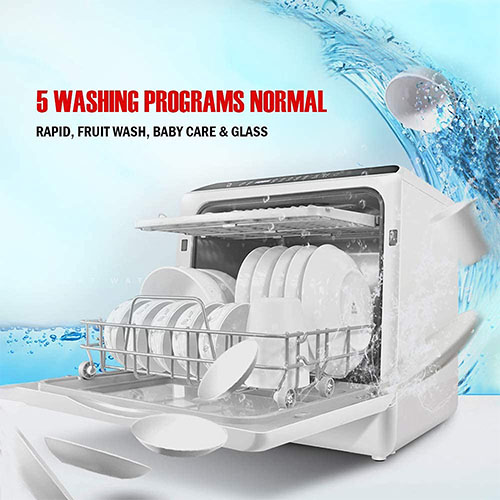
V. Customer Experience
Quality Assurance
- Within the commercial dishwashing industry, quality assurance is an essential requirement rather than a luxury. It is essential for both regulatory compliance and consumer pleasure that your dishes are not just clean but properly sanitized to fulfill health requirements.
- Visual examination: It is imperative to do a visual examination prior to redistributing the dishes. Keep an eye out for any stains or food remnants that the washer may have overlooked.
- Chemical Testing: To make sure the sanitization procedure has been successful, some companies choose to conduct chemical tests. Usually, swab tests that identify microbial activity are used for this.
- Customer Input: Always be on the lookout for input from customers about how clean your dishes are. This can give you important information about how well your dishwashing procedure is working.
Communication
Maintaining good communication with your supplier is essential to the efficient operation of your dishwashing operations. Any miscommunications or shipment delays may cause operational problems that degrade the customer experience.
- Regular Updates: Keep a line of communication open with your supplier for regular updates on shipments, especially for essential items like detergents or replacement parts.
- Problem-Solving: If issues arise, clear and prompt communication can often be the key to quick resolutions.
Logistics and Inventory Management
- Logistics and Inventory Management are often overlooked aspects that can significantly impact your dishwashing operations.
- Stock Levels: Always have enough basic supplies, such as detergents, rinse aids, and replacement parts, on hand. If you run out of these, your business may come to a complete halt.
- Seasonal Planning: Recognize when your company is at its busiest and schedule your inventory appropriately. This guarantees that an unanticipated spike in demand won’t ever catch you off guard.
You may greatly improve the client experience by concentrating on quality assurance, keeping lines of communication open with your suppliers, and streamlining your logistics and inventory management. These components are essential to guaranteeing client happiness and, consequently, the success of your company; they are not only operational features.

VI. Additional Costs and Financing
The initial cost of buying is only the beginning when it comes to a commercial dishwasher. To obtain a full picture of their investment, business owners must take into account a number of additional charges. Making an informed decision can be aided by being aware of these extra expenses and looking into financing options.
Financing Options
- Leasing: One viable option is to lease the equipment. This allows you to use the latest models without the hefty upfront costs. However, you’ll need to consider the long-term leasing fees, which can add up over time.
- Bank Loans: Traditional bank loans offer another route, often with lower interest rates compared to other financing methods. However, they usually require a substantial down payment and good credit history.
- Vendor Financing: Some suppliers offer in-house financing options. These are particularly useful if you’re already in a business relationship with the vendor, as they may offer more favorable terms.
- Leasing: One viable option is to lease the equipment. This allows you to use the latest models without the hefty upfront costs. However, you’ll need to consider the long-term leasing fees, which can add up over time.
- Bank Loans: Traditional bank loans offer another route, often with lower interest rates compared to other financing methods. However, they usually require a substantial down payment and good credit history.
- Vendor Financing: Some suppliers offer in-house financing options. These are particularly useful if you’re already in a business relationship with the vendor, as they may offer more favorable terms.
- Installation Costs: Don’t overlook the costs associated with installing your new dishwasher. This includes not just the labor, but also any modifications needed for your space to accommodate the new equipment.
- Maintenance and Repairs: Regular maintenance is essential for the long-term functionality of your dishwasher. Factor in the costs of periodic servicing, replacement parts, and potential repairs.
- Utility Costs: Energy-efficient models can save you money in the long run, but it’s important to understand your utility costs, including water and electricity, to operate the machine.
Making a more calculated investment in your commercial dishwasher is possible if you are aware of these additional expenses and take into account different financing possibilities. By doing this, you’ll be able to successfully manage your budget and maximize operational efficiency.
VII. Technology and Automation
Using automation and technology can offer you a major advantage in the fast-paced corporate world of today. These developments are more than simply bells and whistles when it comes to commercial dishwashers; they are crucial components that can raise productivity, lower expenses, and improve the whole experience.
Smart Features
- IoT Connectivity: Internet of Things (IoT) capabilities are frequently included with contemporary commercial dishwashers. using the help of this technology, you can keep an eye on the machine’s performance from a distance, get maintenance warnings, and even operate it using a smartphone app.
- Custom Wash Cycles: More sophisticated versions come with wash cycles that can be set up to precisely match certain cleaning specifications. Because of its versatility, you can wash any kind of dishware with the highest level of effectiveness.
- Energy-Saving Modes: To promote cost-effectiveness and sustainability, certain dishwashers offer energy-saving modes that automatically modify how much water and electricity are used depending on the load.
Automation Benefits
- Automation guarantees consistency, so every wash cycle will consistently meet your quality assurance requirements. For companies that have to follow stringent hygienic and sanitization guidelines, this is essential.
- Labor savings: Because automated dishwashers require less human labor, your employees can focus on other important duties. Over time, these labor-saving advantages may result in considerable cost savings.
- Data analytics: Built-in analytics tools are a feature of many advanced models. Proactive operational optimization is made possible by these solutions, which can offer insights into consumption trends, efficiency indicators, and even predictive maintenance schedules.

VIII. Conclusion
Adding commercial dishwashers to your business operations is an investment in efficiency, hygiene, and ultimately, client pleasure. It’s not just about convenience. As this article has shown, selecting the appropriate dishwasher can have a big impact on your company in a number of ways.
- Efficiency: Choosing the correct type of dishwasher can simplify your operations, whether you’re looking for undercounter dishwashers for smaller businesses or conveyor dishwashers for high-volume enterprises.
- Compliance: Two non-negotiable components that protect your business and customers are following health and safety rules and keeping correct temperature management.
- Supplier Selection: You may reduce risks and guarantee long-term benefits by selecting reliable suppliers, being aware of warranty and service agreements, and selecting safe payment options.
- Customer Experience: The customer experience may be greatly enhanced by putting strict quality assurance procedures into place, enhancing supplier communication, and streamlining logistics and inventory control.
Finally, the dishwasher you select should be in line with the particular requirements and difficulties faced by your company. It should save operating expenses, assist you in adhering to regulatory requirements, and—above all—satisfy your clients by providing hygienic and spotless dishware.
Taking a comprehensive approach can help you make an informed selection that will ultimately benefit your organization, taking into account not only the machine but also the supplier, operational efficiency, and compliance.

